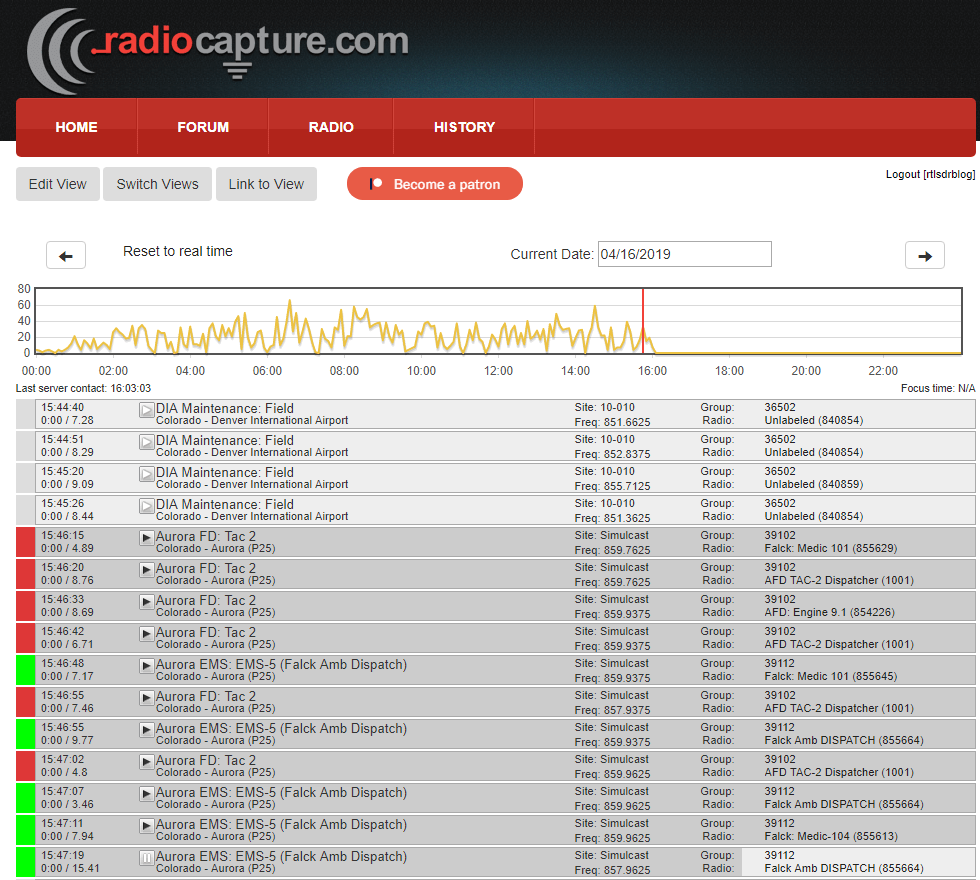RadioCapture – Software to Capture, Archive and Listen to Trunked Radio From Many Sources Now Open Sourced
Back in April 2019 we posted about Matt Mills' Radiocapture.com website which is a web service that you can feed that automatically captures analogue and digital trunked radio conversations with an RTL-SDR, and allows public users to play back conversations via the web interface. The Radiocapture page which shows what the software is capable of is also active at radiocapture.com/radio.
Back in April Matt was fundraising via Patreon and hoping to make development of Radiocapture his day job, but unfortunately he's had to call it quits for now. Since he no longer has time to work on it, Matt has open sourced the RF side of the software. The software description reads:
[Radiocapture-rf] is capable of using multiple networked computers and multiple SDR radios to demodulate the control channel of P25, EDACS, and Motorola trunking systems, as well as some limited support (alpha quality) for scanning for systems, LTR trunking, and "police scanner" style audio capture.
It is designed to effectively scale to an infinite capacity of trunked systems, captured transmission volume, and dongle bandwidth (more dongles = more available bandwidth, more cpus = more channels and more systems). (There is one remaining feature to be implemented to really make this work well, dongle redis autodiscovery (frontend_connect should autodiscover and use available dongles) and splitting the rc_frontend/receiver.py into one process per dongle.
The frontend initializes the SDRs in whatever configured frequency range, and presents a server interface where clients can connect and request a specific channel be created and forward to them. The frontend will then attach a channel, and output to a UDP sink (might be something better now, I forget). On the backend side, a control_demodulator is listening to that sink and doing the actual RF demodulation, which is passed into redis for distribution to other services. The backend is effectively a bunch of microservices that work together to track & record all ongoing transmissions and do some amount of deduplication. This entire setup is designed such that it can be scaled across as many servers/computers as necessary (although there are a few caveats/things I never got around to implementing in how it actually works). Recorded transmissions are decorated with a metadata scheme in their mp3 tags that is designed to be able to be loaded into the Radiocapture.com database. Finally completed mp3s are dropped into an activemq queue for publishing.
Matt notes that the software in it's current state isn't considered as "ready to distribute" as you may need some decent experience with Linux and Python to get it up and running.
